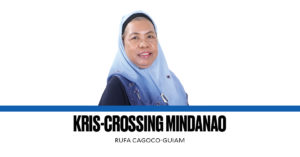First, some background: The Inter-Agency Task Force for the Management of Emerging Infectious Diseases (IATF-EID) is a six-year-old government body created in 2014 to counter the spread of a potential pandemic in the Philippines. In January 2020, the IATF chaired by Health Secretary Francisco Duque III took cognizance of a novel coronavirus situation developing in China and, six weeks later, President Duterte called on the IATF to address the spread of COVID-19 in the country. On March 25, the IATF came up with a National Action Plan and created the COVID-19 National Task Force (NTF) headed by Defense Secretary Delfin Lorenzana that handled operational matters while the IATF became the policymaking body. A few weeks later, Karlo Nograles, Cabinet secretary and then spokesperson of the IATF, announced that the task force had adopted “a national government-enabled, local government-led, and people-centered response to the COVID-19 health event.”Is the COVID-19 problem a “health event”? If it is a health problem, then the cure is more dangerous than the disease and if it were an event, perhaps we should deal with it with less fanfare and attention, and just let people go on with their lives. But we all know that this “health event” involves millions of lives, not just because of health issues but because the means of livelihood of people have been taken away from them. How does one provide for the family if he cannot move around and if shops, offices, and factories are closed? Has the government provided safety nets for them as in wealthier nations? According to the latest official DSWD reports, only 9 million out of 18 million beneficiaries of the social amelioration program have received their emergency cash subsidy of P5,000-P8,000. How about the other 9 million who did not even receive the first tranche? Was it their fault?
Part of our difficulties stem from the fact that the IATF has been approaching the problem from the point of view of those who are able to take care of themselves under full or partial lockdowns. For this group, it is merely a matter of sacrifice over a short period of time. But from the point of view of the vulnerable, those with little or no resources to fall back on, it becomes a desperate fight for survival on a daily basis. And they have been at it for almost two months now.
Let me voice the concerns of one sector of society that apparently has been ignored or overlooked by the IATF. They are the senior citizens of our country.
According to the latest (2015) Philippine Statistics Authority figures, we have 7.5 million senior citizens accounting for 7.5 percent of the population. This year 2020, my calculations put them at roughly 9 million throughout the country. Most of them—almost 90 percent—belong to the 60-80 age bracket that are some of the most productive years of their lives, taking into account knowledge gained and depth of experience.
Many of our senior citizens remain gainfully employed and often continue to be the family breadwinners with children still studying or unemployed. Some are extending financial assistance to their grandchildren. Prolonged confinement at home affects their emotional and mental health. They need to get out and reconnect with the rest of the world. Isolation leads to depression.
Some couples, both senior citizens, are living by themselves. Some are childless while in other cases, the children are either in their own homes far away or are abroad. Who will buy their maintenance medicines, food, and other necessities? One senior citizen has to consult with his personal physician to get a new prescription for maintenance medicines. But the physician requires a personal check-up including complete lab tests to determine whether medication should be increased, decreased, or discontinued. Another senior citizen has to go to the nearest bank to withdraw a meager pension.
Lately, there have been some signals that restrictions on senior citizens may be lifted but again, it is in the implementation where the devil is in the details. By the way, in the case of senior citizens, we do not need special IDs to be issued; we have our existing senior citizen cards issued by our respective local government units that serve as identification.
One last word: Wear masks, keep safe distances, and help each other.
rjfarolan56@gmail.com


